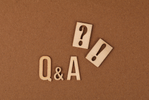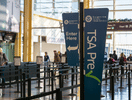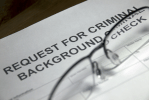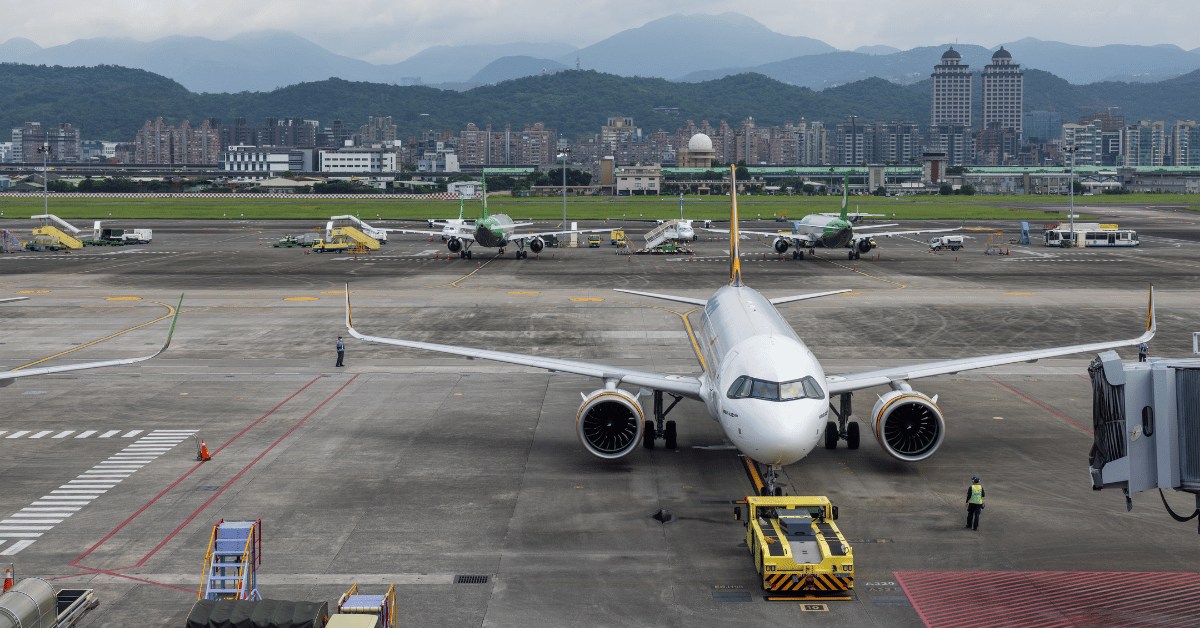Are you gearing up for a TSA interview? Whether you’re aiming for a frontline security position or a role in the PreCheck program, you’ve come to the right place. This guide will walk you through everything you need to know about TSA interview questions, helping you feel confident and prepared when the big day arrives.
- Introduction to TSA Interviews
- Types of TSA Interviews: Panel Interview
- Common TSA Interview Questions and Answers
- TSA Pre-Check Interview Questions and Answers
- Preparing for the TSA Structured Interview Questions
- Background Check and Security Clearance
- Virtual Interview Considerations
- Tips for Success in a TSA Interview
- Conclusion

Introduction to TSA Interviews
Picture this: You’re standing at the threshold of a rewarding career in transportation security. The Transportation Security Administration (TSA) is your gateway, and the interview is your key.
But what exactly should you expect?
A career within the federal government, such as with the TSA, offers stability and fulfillment, making it an attractive option for individuals who are dependable and adaptable.
TSA interviews are more than just a casual chat about your resume. They’re a crucial step in the agency’s mission to protect travelers and maintain the highest standards of security.
The TSA uses these interviews to assess not just your qualifications, but your character, judgment, and ability to handle high-pressure situations.
You might encounter different types of interviews, including a panel interview, depending on the position you’re applying for. These could include:
- Structured interviews: A standardized format where all candidates are asked the same questions.
- Pre-Check interviews: Specific to roles within the TSA PreCheck program.
- Panel interviews: Where you might face questions from multiple interviewers, leading to more thorough documentation, diverse perspectives, and reduced bias. This format also allows candidates to demonstrate various skills and personality traits.
Why is this process so thorough? Well, as a TSA officer, you’ll be the first line of defense in airport security. Your decisions could impact the safety of thousands of travelers every day. That’s why the TSA needs to ensure they’re bringing on board individuals who are not only qualified but also possess the right mindset and values.
So, how can you prepare for this crucial step in your career journey? That’s exactly what we’re here to explore. By the end of this guide, you’ll have a solid understanding of the types of questions you might face and how to craft compelling answers that showcase your suitability for the role.
Ready to dive in? Let’s start by breaking down the different types of TSA interviews you might encounter.

Types of TSA Interviews: Panel Interview
When it comes to TSA interviews, one size doesn’t fit all. The agency uses different interview formats depending on the position and the stage of the hiring process. Let’s explore the two main types you’re likely to encounter: the standardized interview and the PreCheck interview.
Structured Interview
Have you ever been in an interview where it felt like the interviewer was winging it? Well, that’s not the case with TSA structured interviews. These are carefully designed to ensure all candidates are evaluated fairly and consistently.
A standardized format where all candidates are asked the same questions. This process allows for a uniform assessment of candidate responses, ensuring fair evaluation, reducing bias, and maintaining consistent scoring across candidates.
Having a panel of interviewers further enhances the fairness and effectiveness of the hiring process.
In a structured interview:
- Every candidate is asked the same set of predetermined questions.
- Your responses are scored based on specific criteria.
- The format allows for a more objective comparison between candidates.
But why does the TSA use this approach?
It’s all about fairness and effectiveness. By standardizing the process, they can better identify candidates who possess the skills and qualities essential for the job.
What kind of questions might you face?
Here are a few examples:
- “Describe a time when you had to deal with a difficult customer. How did you handle the situation?”
- “If you noticed a coworker violating security protocols, what would you do?”
- “How would you stay alert during long shifts with repetitive tasks?”
These questions are designed to assess your problem-solving skills, integrity, and ability to maintain focus in challenging conditions – all crucial attributes for a TSA officer.
PreCheck and TSA Airport Assessment Interview
Now, let’s talk about the TSA PreCheck interview. If you’re applying for a role within this program, your interview might look a bit different.
TSA PreCheck is a program that allows low-risk travelers to enjoy expedited screening at participating airports. As such, the interview process for PreCheck-related positions focuses on assessing your ability to quickly and accurately determine traveler risk levels.
In a Pre-Check interview, you might encounter questions like:
- “How would you handle a situation where a PreCheck member becomes argumentative about the screening process?”
- “What factors would you consider when determining if a traveler qualifies for expedited screening?”
- “How would you balance efficiency with thorough security checks in the PreCheck lane?”
These questions aim to evaluate your decision-making skills, customer service abilities, and understanding of risk assessment principles.
Whether you’re facing a structured interview or a PreCheck-specific one, remember this: preparation is key. The more familiar you are with the format and types of questions, the more confidently you can present yourself as the ideal candidate for the job.
In the next section, we’ll dive deeper into common TSA interview questions and how to craft compelling answers. Ready to take your interview prep to the next level?

Common TSA Interview Questions and Answers
Alright, buckle up! We’re about to dive into the nitty-gritty of TSA interview questions. Think of this as your mental metal detector – we’re going to scan for potential questions and uncover the best ways to answer them. No need to remove your shoes for this one, though!
Job-seekers often face significant challenges during the job interview process, including the complexities of modern hiring practices and the emotional toll it takes on candidates. The increase in applicants can lead to arbitrary elimination criteria, and the lack of feedback and communication from employers post-interview adds to the frustration.
Behavioral Questions on Interpersonal Skills
These questions are designed to peek into your past experiences and assess your interpersonal skills.
The TSA wants to know how you’ve handled situations that might crop up in the high-stakes world of airport security.
“Describe a time when you had to handle a difficult situation at work.”
“At my previous job in retail, we had a customer who was convinced we’d overcharged him. He was getting louder and more agitated by the minute. I calmly as
ked him to step aside with me, away from other customers. Maintaining a professional demeanor, I listened to his concerns, double-checked the receipt, and discovered there was indeed a small error. I apologized sincerely, corrected the mistake, and offered a small discount on his next purchase. By staying calm and taking the time to investigate, I turned a potentially explosive situation into a positive customer service experience.”
Pro Tip: Use the STAR method (Situation, Task, Action, Result) to structure your answers. It’s like a good carry-on bag – keeps everything organized and easy to access!
Situational Questions
These are the “what if” scenarios. They’re testing your judgment and decision-making skills compared to other candidates. No crystal ball required, just good old common sense and a solid understanding of TSA protocols.
“How would you handle a situation where you suspect a passenger is carrying a prohibited item?”
“First, I’d remain calm and professional. I’d politely inform the passenger that I need to perform additional screening. I’d explain the process clearly and ask if they have any items they’d like to declare before we begin. If a prohibited item is found, I’d follow TSA protocols for confiscation and documentation. Throughout the process, I’d maintain a respectful demeanor, understanding that most passengers aren’t intentionally trying to break rules. My approach sets me apart from other candidates by ensuring security while also providing good customer service, balancing firmness with empathy. Additionally, I understand that the TSO position can be physically demanding, requiring long hours on one’s feet and the ability to handle physically challenging tasks.”
Remember, in these scenarios, you’re not expected to be a mind reader or a superhero. The TSA is looking for level-headed individuals who can follow procedures and use good judgment.
Technical/Role-Specific Questions
These questions are like the body scanner of the interview process – they’re designed to see right through to your knowledge of TSA procedures, including the tsa cbt test, and airport security.
“What steps do you take to ensure airport security?”
“Ensuring airport security is a multi-layered process. It starts with thorough passenger and baggage screening, using both technology like X-ray machines and metal detectors, and manual inspections when necessary. I’d stay vigilant for any suspicious behavior or items. Proper documentation checks are crucial. I’d also ensure restricted areas remain secure and regularly patrol my assigned area.
Importantly, passing the TSA CBT test is essential as it assesses writing skills and English proficiency, which are critical for understanding and implementing TSA protocols. Lastly, I believe in the ‘If You See Something, Say Something’ philosophy – encouraging both colleagues and passengers to report any concerns.”
Pro Tip: Don’t try to bluff your way through technical questions. If you’re not sure about something, it’s better to say, “I’m not certain about that specific procedure, but I’m eager to learn and would follow proper protocols to find the correct information.”

TSA Pre-Check Interview Questions and Answers
Ah, TSA PreCheck – where the security process is faster than a New York minute. If you’re interviewing for a PreCheck position, you’ll need to show you can keep things moving while still maintaining eagle-eyed vigilance.
“How would you handle a situation where a PreCheck member becomes argumentative about the screening process?”
“First, I’d remind myself that even PreCheck members can have bad days – maybe they just found out their favorite inflight snack is discontinued! I’d calmly explain that while PreCheck offers expedited screening, it doesn’t exempt anyone from all security measures. I’d clarify the current procedures and why they’re necessary. If the passenger remains upset, I’d offer to have a supervisor further address their concerns. Throughout the interaction, I’d maintain a professional and respectful demeanor, aiming to de-escalate the situation while ensuring all required security protocols are followed.”

Preparing for the TSA Structured Interview Questions
Preparing for a TSA structured interview is like packing for a trip – you want to be ready for anything without overstuffing your mental suitcase.
The TSA airport assessment is a comprehensive evaluation process that includes various challenges such as the color vision test and standardized interviews to assess key soft skills necessary for the TSA officer role. Focusing on active candidates rather than exclusively seeking passive ones is a great idea, as it can improve the hiring process and benefit job-seekers.
Here are some tips to help you ace that structured interview:
- Research, research, research: Know the TSA’s mission, core values, and current initiatives. Understanding the TSA airport assessment process is crucial. It’s like studying the airport map before you travel – you’ll navigate the interview with much more confidence.
- Practice the STAR method: Remember Situation, Task, Action, Result? It’s your Swiss Army knife for behavioral questions.
- Stay calm under pressure: The interviewer might throw you a curveball question. Take a deep breath, think for a moment, and then respond. It’s okay to say, “That’s an interesting question. Let me think about that for a second.”
- Ask questions: At the end of the interview, have some thoughtful questions ready about the role or the TSA. It shows you’re genuinely interested and engaged.

Background Check and Security Clearance
Now, let’s talk about the elephant in the room – or should I say, the full-body scanner in the terminal? The background check and security clearance process.
As a potential TSA employee, you’ll be subject to a thorough background check. This isn’t just a quick scroll through your social media (though they might do that too). They’ll be looking at your criminal record, employment history, and even your financial background.
During the interview, you might be asked about:
- Any past legal issues
- Your financial stability
- Your personal relationships and affiliations
Be honest and upfront. If there’s something in your past you’re concerned about, it’s better to address it head-on.
Remember, they’re not looking for perfect people – they’re looking for honest ones.

Virtual Interview Considerations
Welcome to the digital age, where your next TSA interview might be conducted from the comfort of your living room! But don’t let the familiar surroundings fool you – a virtual interview requires just as much preparation as an in-person one, especially in today’s competitive job market.
Here are some tips to help you ace your virtual TSA interview:
- Test your tech: Nothing says “I’m not detail-oriented” like spending the first 10 minutes of your interview trying to get your microphone to work. Being prepared for virtual interviews is crucial in the current job market.
- Set the stage: Find a quiet, well-lit area with a neutral background. Your interviewer doesn’t need to see your collection of airport snow globes (impressive as it may be).
- Dress the part: Yes, even if you’re sitting at home. A professional appearance shows you’re taking the interview seriously.
- Make eye contact: Look at the camera, not the screen. It’s the virtual equivalent of good eye contact.
- Have a backup plan: Internet issues? Phone dying? Have a backup device and your interviewer’s contact information handy, just in case.
Remember, even in a virtual setting, your goal is to convey professionalism, competence, and enthusiasm for the role.

Tips for Success in a TSA Interview
You’re almost there! Here are some final tips to help you land that TSA job after you have successfully completed the initial stages:
- Be punctual: Arrive early for in-person interviews or log in a few minutes early for virtual ones. In the world of TSA, timing is everything!
- Show enthusiasm: The TSA wants people who are passionate about safety and security. Let that passion shine through!
- Highlight relevant skills: Whether it’s attention to detail, ability to work under pressure, or excellent communication skills, make sure to emphasize how your abilities align with TSA needs.
- Follow up: Send a thank-you email after the interview. Following up after you have successfully completed the interview is like that final security check before you board – a small step that can make a big difference.

Conclusion
Congratulations! You’ve made it through our comprehensive guide to TSA interview questions. Remember, the key to success is preparation, honesty, and staying true to yourself.
As you step into your TSA interview – be it in person or virtual – take a deep breath and remind yourself: you’ve got this! You’re not just prepared; you’re ready to soar into your new career with the TSA.
Now, go out there and show them why you’re the perfect candidate to keep our skies (and airports) safe. And who knows? Maybe one day you’ll be the one asking these questions to the next generation of TSA officers.
Good luck!



